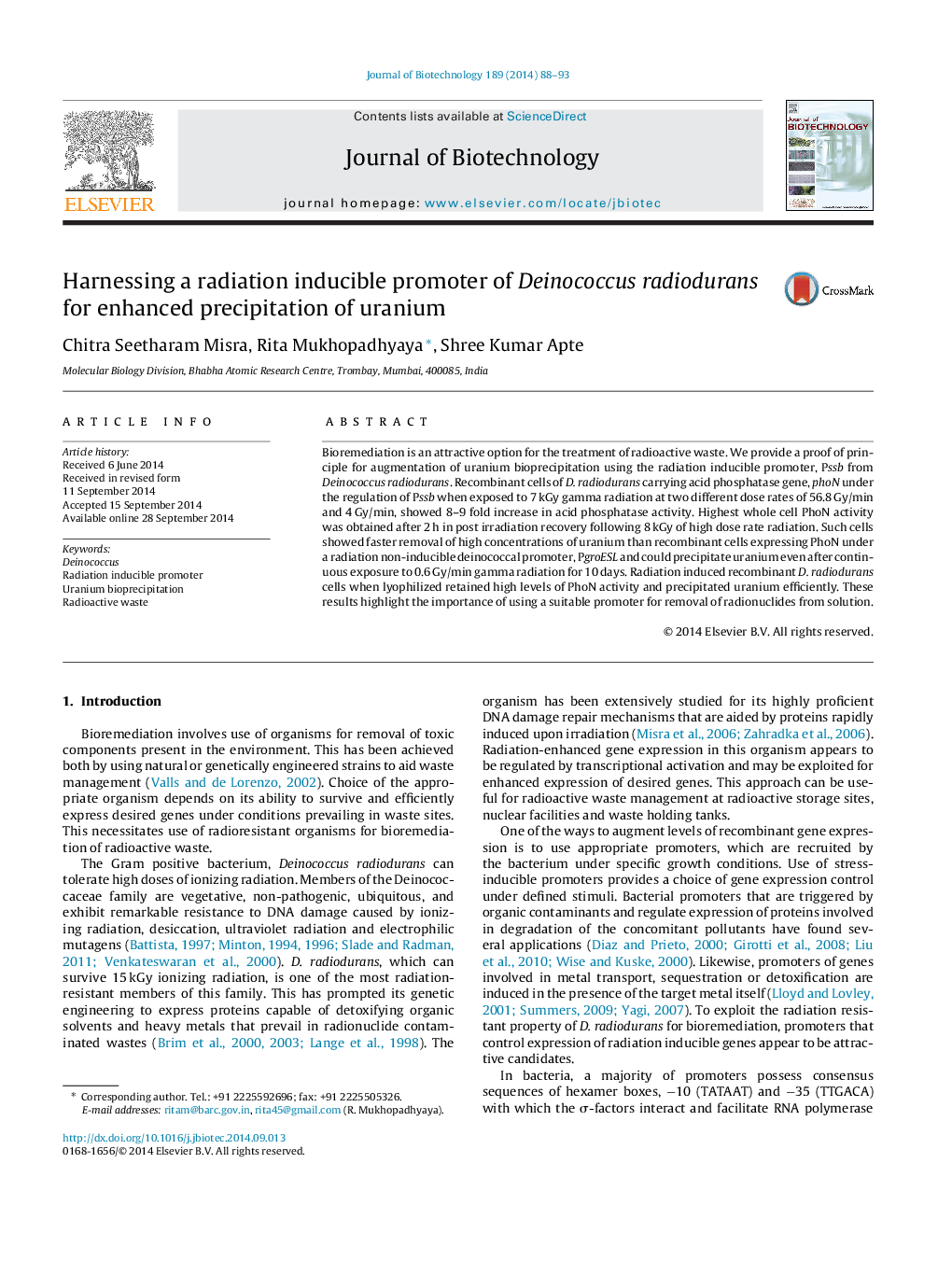| Article ID | Journal | Published Year | Pages | File Type |
|---|---|---|---|---|
| 23057 | Journal of Biotechnology | 2014 | 6 Pages |
•Radiation inducible promoter Pssb, used to enhance phosphatase gene expression.•Ten fold induction of phosphatase activity achieved in Deinococcus upon irradiation.•Higher phosphatase activity exploited for rapid uranium precipitation.•Uranium precipitation ability retained under 0.6 Gy/min chronic dose for 10 d.•Lyophilization of such cells increased shelf life at room temperature.
Bioremediation is an attractive option for the treatment of radioactive waste. We provide a proof of principle for augmentation of uranium bioprecipitation using the radiation inducible promoter, Pssb from Deinococcus radiodurans. Recombinant cells of D. radiodurans carrying acid phosphatase gene, phoN under the regulation of Pssb when exposed to 7 kGy gamma radiation at two different dose rates of 56.8 Gy/min and 4 Gy/min, showed 8–9 fold increase in acid phosphatase activity. Highest whole cell PhoN activity was obtained after 2 h in post irradiation recovery following 8 kGy of high dose rate radiation. Such cells showed faster removal of high concentrations of uranium than recombinant cells expressing PhoN under a radiation non-inducible deinococcal promoter, PgroESL and could precipitate uranium even after continuous exposure to 0.6 Gy/min gamma radiation for 10 days. Radiation induced recombinant D. radiodurans cells when lyophilized retained high levels of PhoN activity and precipitated uranium efficiently. These results highlight the importance of using a suitable promoter for removal of radionuclides from solution.
